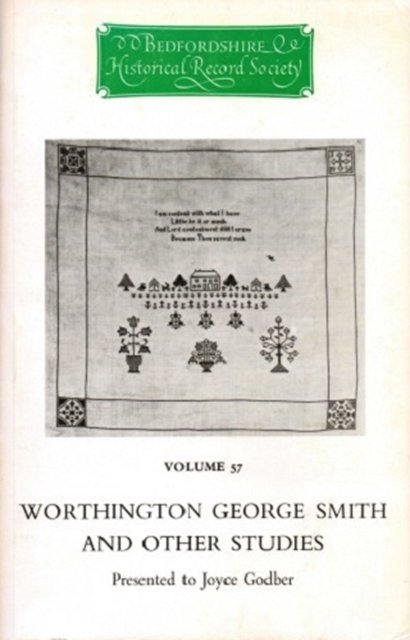Book contents
- Frontmatter
- Contents
- Contributors
- Illustrations
- Foreword
- Bedfordshire Chapelries: An Essay In Rural Settlement History
- Bedfordshire Heraldry: A Conspectus
- Middlemen In The Bedfordshire Lace Industry
- Joshua Symonds, An Eighteenth-Century Bedford Dissenting Minister
- The 1830 Riots In Bedfordshire - Background and Events
- A Bedfordshire Clergyman of The Reform Era and His Bishop
- Worthington George Smith
- Aspects of Anglo-Indian Bedford
- The 1919 Peace Riots In Luton
- Index
- Miscellaneous Endmatter
The 1830 Riots In Bedfordshire - Background and Events
Published online by Cambridge University Press: 03 August 2023
- Frontmatter
- Contents
- Contributors
- Illustrations
- Foreword
- Bedfordshire Chapelries: An Essay In Rural Settlement History
- Bedfordshire Heraldry: A Conspectus
- Middlemen In The Bedfordshire Lace Industry
- Joshua Symonds, An Eighteenth-Century Bedford Dissenting Minister
- The 1830 Riots In Bedfordshire - Background and Events
- A Bedfordshire Clergyman of The Reform Era and His Bishop
- Worthington George Smith
- Aspects of Anglo-Indian Bedford
- The 1919 Peace Riots In Luton
- Index
- Miscellaneous Endmatter
Summary
After the NapoleonicWars there had been sporadic agricultural unrest in Bedfordshire, which reached a peak in 1828 and 1829, culminating in the ‘Swing Riots’ of 1830. This county is fortunate in that these events are chronicled both in the estate correspondence of the Duke of Bedford, by whose stewards the events were viewed with concern, and in the many records of the Quarter Sessions Courts, both of which have been extensively used in this article.
As early as 1817, the Riseley parishioners assembled in vestry to draw up a congratulatory address to the Prince Regent on his escape from the ‘treasonous assault’, showed, as only contemporaries can, their feeling of apprehension and depression. ‘We … inhabitants of… Riseley, altho’ obscure individuals and living in a Village, deem it incumbent on us, as dutifull & loyal Subjects of Great Britain, to declare our sentiments, on the present state of publick affairs. We are aware of the distresses, which affect every class of the Community, especially the poor, and are desirous that every lawfull means be used, for their relief, and we Confidently hope & believe, that the national resources are not radically impaired, but merely under a partial, and temporary, obstruction, that the difficulties we have to endure, will, by the enlightened policy of Ministers, be overcome & that the Agriculture, Manufactures, & Commerce of the Country, will, soon revive flourish & increase … We cannot doubt, that the hand of providence will again be opened to us, that when things find their natural level, our income will equal our expenditure and that England, already the Queen and benefactress will again become the emporium of Nations’.
In practically every village there were many labourers who were unable to find regular employment and so, because unemployed, became the responsibility of the parish. The ‘roundsman’ system evolved from this situation and under it unemployed labourers were taken on by the farmers in the village (the main ratepayers) in proportion to each farm’s rateable value. They were employed very often on trivial or unessential work, and were paid less than the ordinary labourer’s wage.
- Type
- Chapter
- Information
- Worthington George Smith and Other Case Studies , pp. 75 - 112Publisher: Boydell & BrewerFirst published in: 2023

